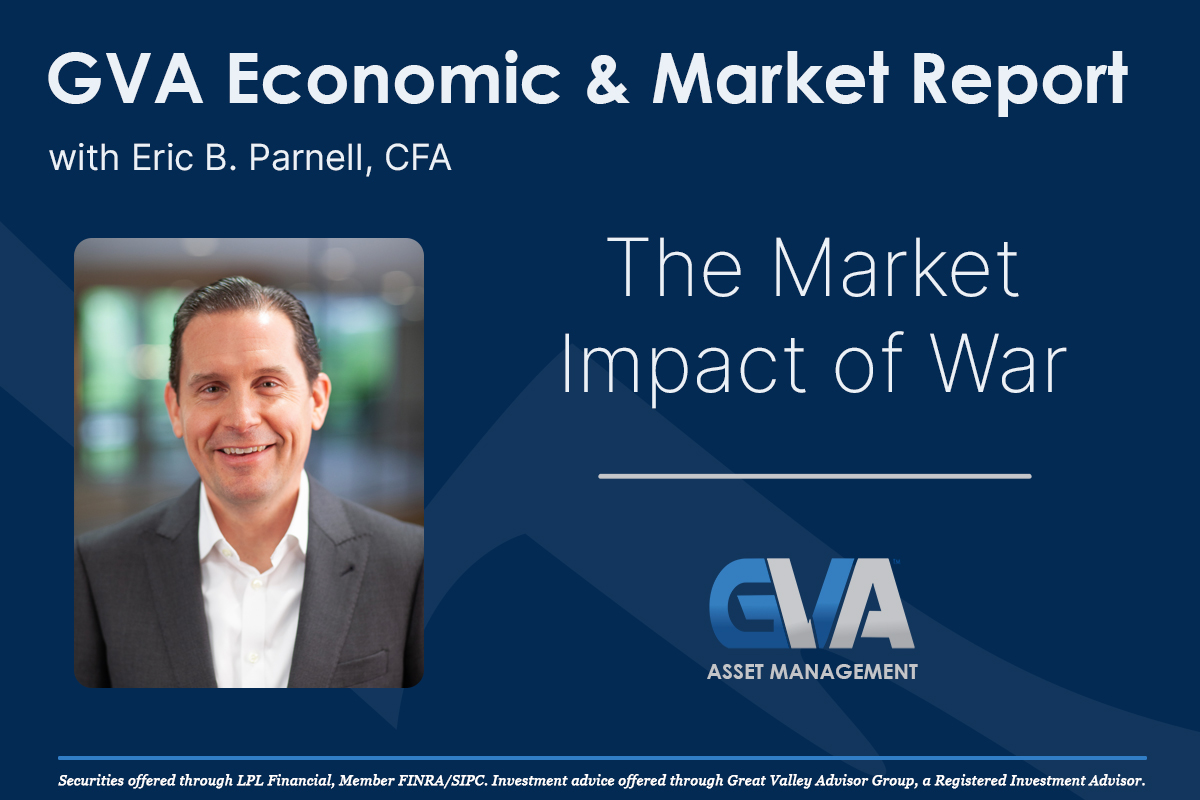
The world was shaken this past weekend by the sudden and unexpected outbreak of war in Israel. As we continue to watch closely as the geopolitical and humanitarian crisis unfolds, it is also understandable to wonder about the potential impact on capital markets going forward. And history provides a useful guide to our understanding of what to expect from here.
Initial reaction. The invasion of Israel by Hamas took place on October 7, which was a Saturday when capital markets across most of the world were closed. As a result, most investors had a few calendar days to assess the potential market implications before taking any action. This was particularly true for bond investors, as the U.S. bond market was closed on Monday for Columbus Day. These factors likely helped diffuse any abrupt market movements associated with the unexpected attack.
Nonetheless, it remained uncertain how investors would initially react once financial markets reopened. But after a -0.6% decline in the S&P 500 over the first 90 minutes of trading, stocks bottomed out by around 11AM on Monday and were off to the upside through the remainder of the trading day, ending higher for the session. The advance continued into mid-day Tuesday before leveling out through Wednesday’s trading. In short, the U.S. stock market reaction has been minimal to none so far.
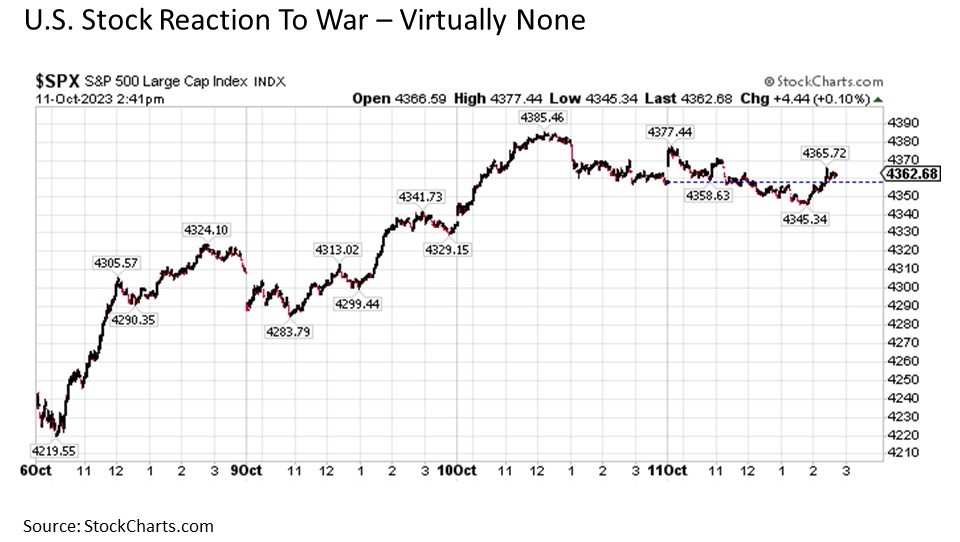
What about bonds and gold? The market reaction here was far less surprising, as geopolitical instability frequently sparks a safe-haven flight to quality. And given that both Treasury and gold were already heavily oversold following a relentless selling wave during the second half of September though the first week of October, this provided added fuel for the more than +1% jump in 10-Year U.S. Treasuries and +3% surge in gold.
Looking closer toward the epicenter. What about the financial markets most directly impacted by the invasion? Stocks most directly affected would be those in Israel. And unlike the U.S. where trading takes place from Monday through Friday, the Tel Aviv Stock Exchange is open from Sunday through Thursday. As a result, the financial market impact was to be felt sooner in Israel. The downside among Israel stocks was initially swift as would have been reasonably expected, as the Tel Aviv 125 Index dropped by more than -7% in the first three hours of trading on Sunday, but much like the U.S. on Monday, Israel stocks effectively bottomed and have been slowly making their way back to the upside in the trading days since.
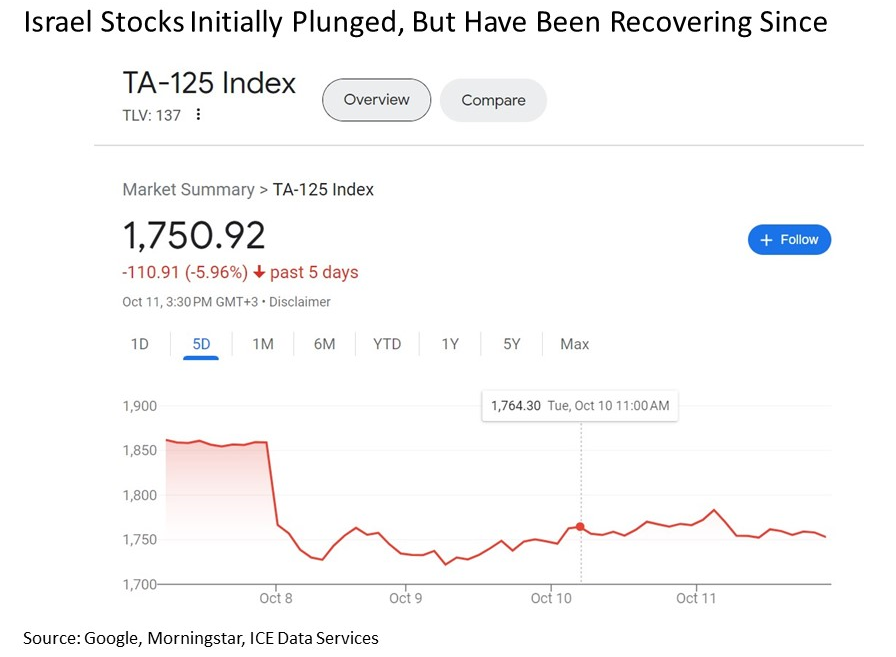
The market impact of war. While the market reaction to the unexpected outbreak of war may be surprising at first glance, it is consistent with history. Put simply, while the political and human impact of war is profound, financial markets have historically been largely unaffected by such conflicts over time outside of an immediate impact that is quickly traded away. Consider the following past examples that were more global in scale.
World War II. The first is the U.S. stock market reaction to the attack on Pearl Harbor on December 7, 1941, that effectively ushered the United States into World War II. The Dow Jones Industrial Average had already been declining for some time in December 1941 in the midst of the secular bear market dating back over a decade. And, while the U.S. stock market immediately dropped by more than -5% through December 23 that year, it subsequently bounced. By January 1942, stocks were +1.5% higher since Pearl Harbor. Of course, stocks subsequently rolled over in the next four months, declining a total of more than -17% through April 1942. But this late April bottom effectively represented the final secular bear market lows for U.S. stocks during the Great Depression period. For only three months later in July 1942, stocks had recovered most of their lost value since Pearl Harbor. By October 1942, they had recovered all of it. And, over the remainder of World War II, U.S. stocks steadily rose.
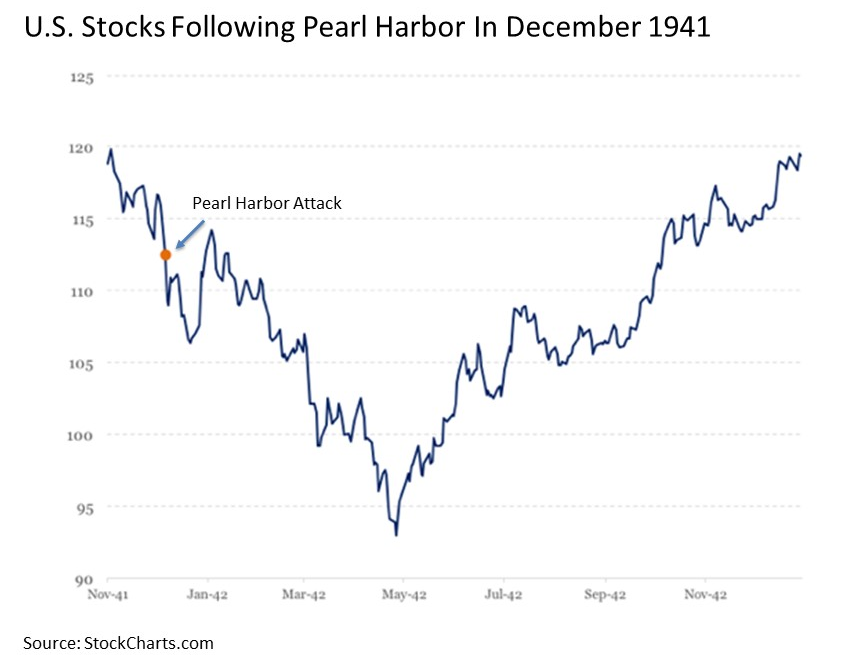
Cuban Missile Crisis. The next is the Cuban Missile Crisis, which took place over the course of 13 days from October 16 to October 28, 1962. Many historians regard this incident as the closest the world has come to the outbreak of a global nuclear war. U.S. stocks, as measured by the S&P 500 Index, immediately dropped by -7% in the first four trading days of the crisis starting on October 16, but quickly bottomed and subsequently rallied. By November 1, they had recovered all of their lost value. And, by the end of the year, they were higher by double digits.
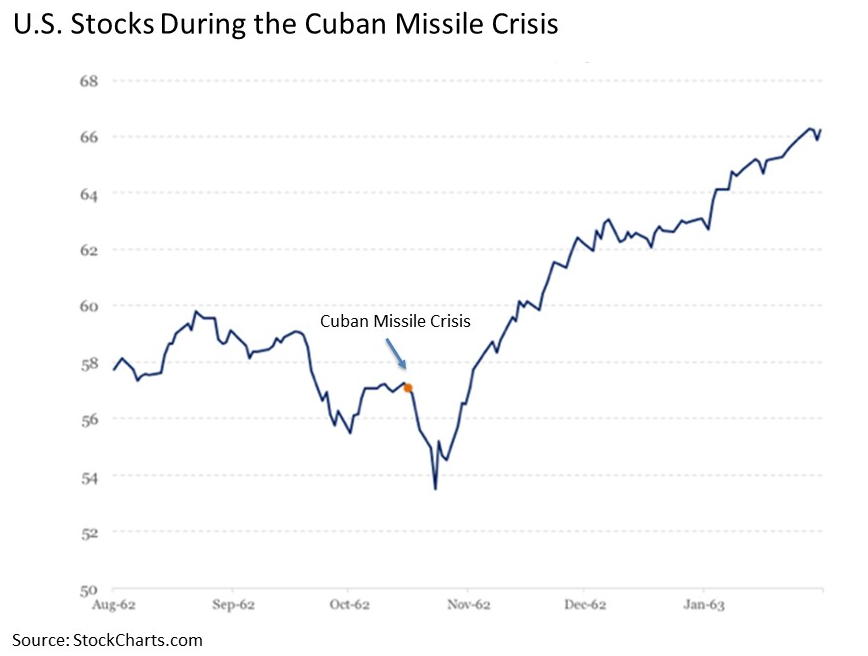
September 11. The third is the 9/11 terrorist attacks that included the collapse of the World Trade Center in New York City and the closure of the U.S. stock market for four trading days. Stocks fell by more than -8% immediately after the market reopened and proceeded to decline by as much as -15% over the next few trading days. But by September 21, stocks had bottomed. Less than a month later, they had recovered all of their lost value. And, by early December 2001, stocks were higher by more than +3% versus their pre-attack levels.
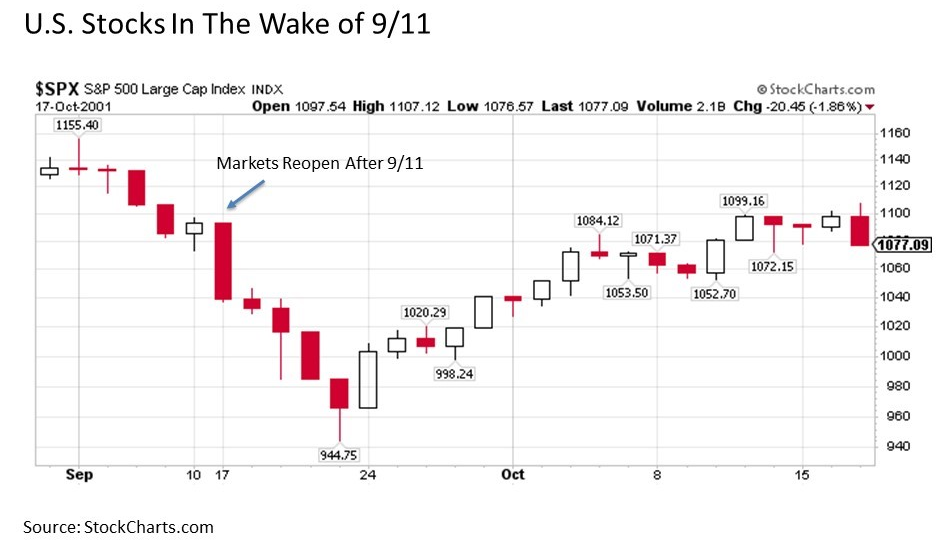
Bottom line. Geopolitical events like the outbreak of war are unnerving in many ways. And the tragic human and personal impact of these events cannot be overstated. But when it comes to capital markets, we have seen throughout history that the associated impact outside of any immediate-term reaction to crisis is minimal. We are seeing evidence of this continuing to hold true today, and will likely continue to be the case in the years to come.
Disclosure: I/we have no stock, option or similar derivative position in any of the companies mentioned, and no plans to initiate any such positions within the next 72 hours. I wrote this article myself, and it expresses my own opinions. I am not receiving compensation for it. I have no business relationship with any company whose stock is mentioned in this article. Investment advice offered through Great Valley Advisor Group (GVA), a Registered Investment Advisor. I am solely an investment advisor representative of Great Valley Advisor Group, and not affiliated with LPL Financial. Any opinions or views expressed by me are not those of LPL Financial. This is not intended to be used as tax or legal advice. All performance referenced is historical and is no guarantee of future results. All indices are unmanaged and may not be invested into directly. Please consult a tax or legal professional for specific information and advice.
Compliance Tracking #: 490763-1
